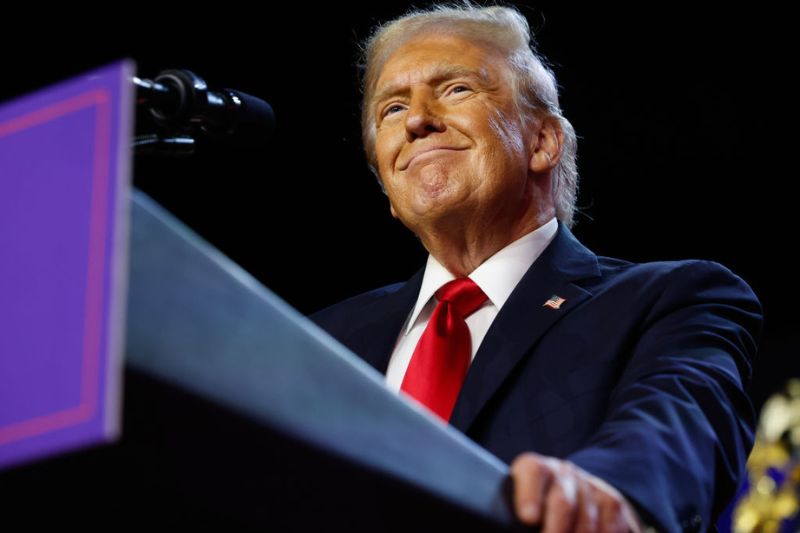Donald Trump’s stunning victory over Kamala Harris in the US presidential election has wide-ranging implications for Australia, both domestically and in how we engage with the world. Republicans may well have swept the board, having won a majority in the Senate and looking likely to have a majority in the House, too. So, the United States – and the world – braces itself for an unfettered Trump, an unrestrained and enabled President, a leader who can this time claim to have won the popular vote (or at least gone damn close) and who, eight years on from his first win, knows inestimably more about how government works and whose staff is now stacked with true believers, rather than ‘adults in the room’ trying to stymie his worst impulses.

The early analysis also suggests women did not flock to Democrats to the extent predicted; African-American voters did not desert the Democrats to the extent some feared and the polls, broadly speaking, were off again. A majority of voters believed the economy was on the wrong track, and a strong majority of those people voted for Trump. Harris has performed worse than Biden, worse than Hillary Clinton, far worse than Barrack Obama and worse than Al Gore as Trump’s standing with Hispanic Americans, union members and more improved.
The analysis of how Trump achieved a famous victory will continue for months and years to come. The more germane questions right now are what does this result mean for Australia’s economic, defence, trade and foreign policy, and what lessons (if any) are there for Anthony Albanese and Peter Dutton?
Predictably, the Australian Greens and the anti-AUKUS wing of the Labor Party put out statements on Wednesday night calling for the nuclear submarine deal to be cancelled and the US alliance to be re-considered. Of all the many pivots that may occur as a result of this election result, this is the least likely to occur.
In parliament on Wednesday, as the results were tabulated, both Anthony Albanese and Peter Dutton said they would be able to work with whoever formed the next US administration and both men quickly issued statements congratulating Trump when the result became clear. It’s possible there may be changes around the margins – for example, Australia being required by a transactional president to tip in even more than the $4.7 billion we will already spend to access US Virginia-class submarines – but at this stage it won’t be much more than that.
Trump’s threat/promise to slap 20 per cent tariffs on foreign imports (and 60 per cent on Chinese imports) will hurt global trade, lead to lower growth rates and could lead to higher interest rates – as Treasury secretary Steven Kennedy has warned – at home. That’s bad news for Albanese. Former US Ambassador Joe Hockey’s role in ensuring Australia avoided Trump Mark I’s trade tariffs on steel and aluminium has been underappreciated and are unlikely to be repeated, though no doubt Kevin Rudd will apply his considerable talent and work ethic to the problem.
Some commentators have suggested that Rudd himself may need to be withdrawn and replaced. Albanese will resist this impulse, though in an incoming administration of true believers it may be unavoidable. Rudd’s considerable expertise on China, and on Xi Jinping in particular, may see him through to safety. Time will tell. So while the US-Australia defence alliance will likely remain (mostly) stable, foreign policy will become more unpredictable under a mercurial US president, as will the trade environment, and economic conditions could toughen heading into an election in the first half of next year.
'Albanese will know he needs to get to Washington as soon as possible once Trump takes office in January, to begin building a relationship with the returning president. The prime minister will also do well to heed the lesson that people feeling the pinch economically, no matter what the headline economic data might say, will not hesitate to punish an incumbent leader.'
Australia is, however, better placed than Europe – Trump’s distaste for the NATO alliance is well known- and spare a though for Ukrainian president Volodymyr Zelenskyy, who faces the potential withdrawal of support in his defensive war with Russia.
Which brings us back to the domestic political implications of the Trump victory. Dutton and the Right Faction of his party will be emboldened by this victory. It will feed their belief that they are on the right track, that their strategy of targeting outer-suburban and regional voters – people without a degree, so called “low information” voters (an awful, condescending term), people struggling with the cost of living despite working full time - is the correct one and that they should hold the line.
They may well be right.
Trump’s victory makes abundantly clear that no matter what the headline economic data might show about a booming US economy and low unemployment, people are hurting and they will vote anti-incumbent if they feel like they aren’t being listened to. That is a warning from halfway across the world that Albanese must heed if he is to have any chance of winning a majority at the next poll.
Albanese will know he needs to get to Washington as soon as possible once Trump takes office in January, to begin building a relationship with the returning president. The prime minister will also do well to heed the lesson that people feeling the pinch economically, no matter what the headline economic data might say, will not hesitate to punish an incumbent leader.
James Massola is National Affairs editor for The Age and the Sydney Morning Herald, based in Canberra. He has previously been South-East Asia Correspondent, based in Jakarta, and Chief Political Correspondent in Canberra. He has also worked for the Canberra Times, the Australian, the Australian Financial Review, as assistant editor of Eureka Street and is a regular commentator on ABC radio and TV. He is also the author ofThe Great Cave Rescue about the Thai boys football team.